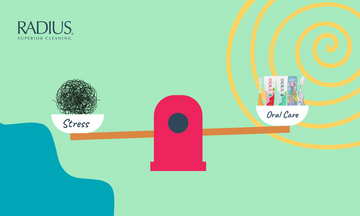


In today's fast-paced world, stress has become a common companion for many of us. From work deadlines to personal responsibilities, stress can manifest in various ways, affecting not only our mental well-being but also our physical health, including our oral health. Understanding the link between stress and oral health is crucial for maintaining a healthy smile. In this blog, we'll explore how stress impacts oral health and discuss strategies for managing both effectively.
Stress can wreak havoc on our oral health in several ways:
Increased Risk of Gum Disease: Chronic stress weakens the immune system, making it harder for the body to fight off infections, including gum disease. Research has shown a direct link between stress and an increased risk of gum disease, such as gingivitis and periodontitis.
Bruxism (Teeth Grinding): Stress often leads to teeth grinding or clenching, a condition known as bruxism. Grinding your teeth can cause enamel wear, tooth sensitivity, jaw pain, and even cracked or broken teeth over time.
Dry Mouth: Stress can also contribute to dry mouth, a condition where the mouth produces insufficient saliva. Saliva helps wash away food particles and neutralize acids, protecting against tooth decay and gum disease. Without enough saliva, the risk of cavities and gum problems increases.
Poor Oral Hygiene Habits: When stressed, people may neglect their oral hygiene routines, such as brushing and flossing regularly. This neglect can lead to a buildup of plaque and bacteria, increasing the risk of cavities, gum disease, and other oral health issues.
While stress is unavoidable, there are strategies we can employ to mitigate its impact on our oral health:
Practice Stress Reduction Techniques: Incorporate stress-reduction techniques into your daily routine, such as deep breathing exercises, meditation, yoga, or mindfulness. These practices can help calm the mind and relax the body, reducing the physical manifestations of stress, including teeth grinding and jaw clenching.
Maintain a Healthy Lifestyle: Eat a balanced diet rich in fruits, vegetables, whole grains, and lean proteins. Limit sugary snacks and beverages, as they can contribute to tooth decay. Regular exercise can also help reduce stress levels and improve overall well-being.
Establish a Consistent Oral Hygiene Routine: Stick to a regular oral hygiene routine, brushing your teeth at least twice a day with a fluoride toothpaste and flossing daily. Choose high-quality oral care products like those offered by RADIUS, including toothbrushes, toothpaste, and floss designed for kids, adults, and even pets.
Use Stress-Relief Products: Consider using stress-relief products to help alleviate tension and promote relaxation. For example, RADIUS offers toothbrushes with ergonomic handles and soft bristles, providing a gentle and comfortable brushing experience. Additionally, try incorporating CBD-infused toothpaste or massage oil into your oral care routine for added relaxation benefits.
Seek Professional Help: If stress is significantly impacting your oral health or overall well-being, don't hesitate to seek professional help. Talk to your dentist or healthcare provider about your concerns and explore potential treatment options, such as mouthguards for bruxism or stress management counseling.
By understanding the link between stress and oral health and implementing these strategies into your daily life, you can effectively manage stress while maintaining a healthy smile. Remember, taking care of your oral health is essential for your overall well-being, so prioritize self-care and make your dental health a priority.
